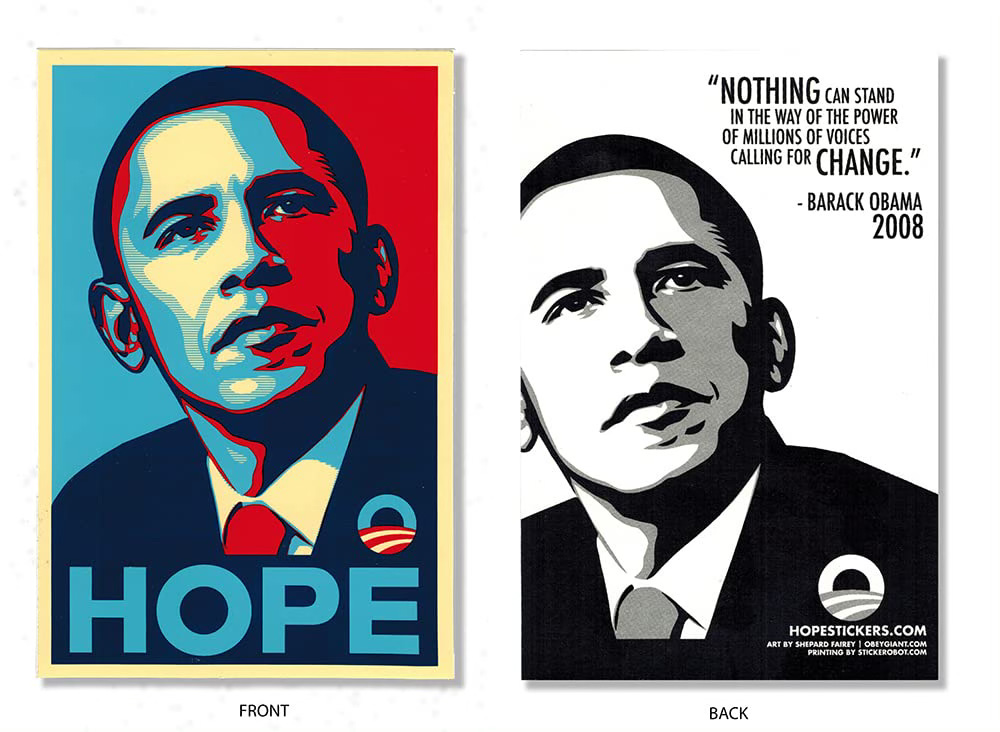A Hopeless Campaign in Need of Reconstructionism
If I had to describe American politics, and especially the 2024 presidential race, in one word, it would be “hopeless.”
Despite the urgency of the crises facing this nation, neither major party nor presidential candidate instills the American public with any sense of hope, and our absence of hope is not a random aberration. It is a recurring theme within American politics and American life, yet it is treated as a surprise each time it reappears; as somehow unique to the moment. In fact, however, hope is the aberration yet we act as if it is an ever-present. Reality has been inverted. It is about time that we understand this troubling status quo and learn how to cultivate genuine, enduring hope.
In a recent story for The New Yorker titled “Is the Biden Campaign Running on False Hope?”, Isaac Chotiner interviewed Democratic Party strategist Simon Rosenberg, and his enthusiasm for President Joe Biden’s campaign demonstrated the hopelessness of the present. Rosenberg was very hopeful about Biden winning re-election, but his hopefulness should make all of us less hopeful.
Rosenberg’s hope and strong belief that Biden will win in 2024 has nothing to do with Biden doing anything hopeful, and being behind Trump in multiple polls does not seem to be a cause for concern. Instead, Rosenberg’s emphasis was on hoping and predicting that Trump becomes a weaker candidate as the election progresses and that a majority of Americans decide to vote for Biden because he is the better candidate. Trump being found guilty of 34 felonies certainly reinforces the hope of him becoming a weaker candiate, but the surge in donations—estimated to be over $200 million—since Thursday’s verdict does not strengthen the hope that Trump becoming a felon will hurt his support with Republican voters.
According to the story, Rosenberg and insiders within the Biden campaign share a similar perspective. Essentially, Biden does not have to do anything to make Americans hopeful because they hope that the American public will realize that voting for him is the only logical choice if we want to preserve our democracy.
Implicitly, this is a ‘lesser of two evils’ strategy that finds its hopelessness in its unstated acknowledgment that both candidates are evil. When good choices have deserted the electorate, it makes sense to feel hopeless. Yet hopelessness can cloud people’s judgment, even when the fate of our democracy is on the line.
As someone who is not a supporter of Donald Trump and voted for Biden in 2020, I share Rosenberg’s hope, but it is a passive hope, not an active one. Even talking to Democratic voters about the election and hearing them grudgingly admit that they plan on voting for Biden reinforces the hopelessness. Planning on doing the right thing should not feel this bereft. Hoping that enough Americans engage in this process so that Biden can win the Electoral College feels like false hope.
This is not a manifestation of the type of hope that we want politicians and leaders to create. We need politicians to make us affirmatively hopeful on the merits of their message and vision, and not for them to rely on the public to resort to a repository of alternative, comparative hopes to push them to victory.
Biden’s campaign is doing the latter. Their hopes for re-election depend on the hoped-for hopefulness of an electorate that feels hopeless. This is a recipe for disaster, but they do not appear capable of making Americans hopeful. Even Biden’s announcement on Friday of a ceasefire proposal to end the Israel-Hamas war did not make Americans feel hopeful, and Israel’s, thus far, refusal to agree to the proposal only perpetuates the hopelessness. It is a sad day for American politics when the successor to a president who ran on campaign messages of “Hope” and “Change” has reverted to the hopeless status quo.
So as we address the hopelessness of the present, we must explore how we can create hopefulness and change the trajectory of this nation. For me, Reconstructionism holds this creative potential. Reconstructionism consists of continuing the philosophy and ambition of Reconstruction by transcending our entrenched divisions, embracing the humanity of people that America has defined as an Other, and radically reconstructing this nation so that we can all live in dignity.
To adequately understand Reconstructionism, one must acknowledge that Reconstruction, from 1865 to 1877, briefly created the America that has always given us hope. Conversely, the fact that most Americans today know very little about this transformational era means that most of us have been deprived of a source of hope.
Reconstruction abolished slavery, gave citizenship to Black Americans, and conferred voting rights to Black men. It created multiple civil rights acts and the Department of Justice to defend the new rights afforded to Black Americans. Reconstruction radically transformed the United States, providing the legal, cultural, and political foundation for progress. This era was also defined by an unprecedented level of cooperation among Black and white Americans.
While Reconstruction was imperfect, without it the progress of the 1960s, including the Civil Rights Act and the Voting Rights Act, could not have been achieved. Likewise, the Equal Protection Clause and the Due Process Clause of the Fourteenth Amendment, adopted during Reconstruction, enabled the end of segregation in public schools in Brown v. Board of Education and the repeal of the prohibition on interracial marriage in Loving v. Virginia. Also, Roe v. Wade would not have been possible without Reconstruction because the Supreme Court determined that the “right to privacy” that protects a woman’s choice to have an abortion was inherent in the Due Process Clause of the Fourteenth Amendment.
The impact of Reconstruction therefore is not confined to a twelve-year segment of American history. It remains a profound philosophical movement grounded in seeing the humanity of those who were previously considered to be an Other so that all Americans can exercise the rights and freedoms under the Constitution.
It is a movement to transcend the limitations of America’s founding and finally commit ourselves to creating an authentic democracy.
For decades, the American left has professed a vision that progress is inevitable and that this nation has an inherent greatness. Biden professes this message all the time. But Reconstruction had to correct foundational flaws that had corrupted this nation since its inception and spur a radical shift toward genuine democracy and equality and away from the normalized division and terror of the slavery-bound past.
Yet by professing a narrative of America’s inherent greatness and the inevitability of progress, the American left minimizes Reconstruction—the era that created real hope for people of color and their white allies—and normalizes and elevates the dystopian era prior to Reconstruction that embraced racism, division, oppression, and terror. The United States before Reconstruction never established anything even remotely close to what we would define as ‘democratic’ today.
Similarly, the American right unabashedly celebrates the United States’ origin story and our pre-Reconstruction status quo, so it should surprise no one when their agenda consists of undoing the rights created during Reconstruction and their derivatives such as Roe v. Wade.
The American left overlooks, and the American right undermines Reconstruction, and this perpetuates our hopeless status quo. It fuels lesser-of-two-evils campaigns that incentivize apathy, inspire low voter turnouts, encourage a disengaged electorate, and result in regressive policies and agendas that reinforce hopelessness.
Yet, America is not condemned to perpetual hopelessness and the dismantling of our democracy. We can continue Reconstruction, become Reconstructionists, and create hope.
Barack Obama championed hope and, I believe, launched America’s second Reconstruction.
His presidency cultivated a generation of Americans who expected hope to be an ever-present force in American politics and American life. Trump’s (electoral college) victory in 2016 was a return of American hopelessness. But Biden won in 2020 as both a rejection of Trumpian hopelessness and a reaffirmation of the hopefulness Obama represented. Yet Biden continues to disappoint many Americans because his campaign does not evoke the hope that should be his rightful legacy as Obama’s former vice president and partner in the second Reconstruction. To continue that Reconstruction, Biden should become an avowed Reconstructionist and act accordingly.
If America is to ever cultivate and sustain hope again, we must recognize that the majority of this nation did not love Obama because he was a magical figure whose success could never be replicated. We loved Obama because he brought back Reconstruction. He brought back the hope of Reconstruction. We may not have recognized it at the time, but we need to see it now.


